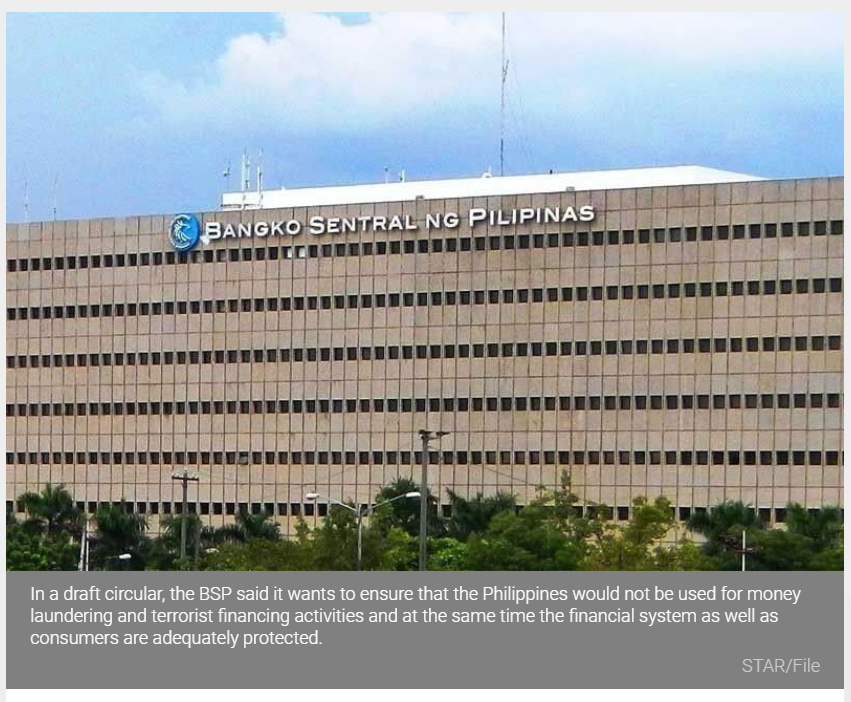Philippines: BSP readies guidelines for virtual assets risks
MANILA, Philippines — The Bangko Sentral ng Pilipinas (BSP) is finalizing the guidelines for virtual assets and the operations of virtual asset service providers to prevent the country from becoming a haven for the financial transactions of criminals and terrorists.
In a draft circular, the BSP said it wants to ensure that the Philippines would not be used for money laundering and terrorist financing activities and at the same time the financial system as well as consumers are adequately protected.
The BSP said virtual assets systems have the potential to revolutionize the delivery of financial services in view of faster and more economical means to transfer funds, both international and domestic, supporting the central bank’s financial inclusion initiatives.
“These benefits, however, should be considered along with the attendant risks in virtual assets considering the higher degree of anonymity involved, the velocity of transactions, volatility of prices and global accessibility,” the BSP said.
In particular, the BSP warned virtual assets pose money laundering and terrorist financing risks, information technology risks, and consumer protection and financial stability concerns, among others.
Virtual asset refers to any type of digital unit crypto currencies or bitcoins that could be traded, or transferred, and could be used for payment or investment purposes. It is used as a medium of exchange or a form of digitally stored value created by agreement within the community of virtual asset users.
The regulator said virtual assets are not issued nor guaranteed by any jurisdiction and do not have legal tender status.
“These guidelines shall cover virtual asset service providers in the Philippines offering services or engaging in activities that provide facility for the conversion or exchange of fiat currency to virtual asset or vice versa; and related activities necessary to perform and complete the said conversion,” the BSP said.
According to the BSP, it recognizes that once fiat currency is exchanged or converted into virtual asset, it becomes easily transferrable, facilitating expedient movement or transfer of funds and payment services, among others.
In this manner, the BSP explained virtual assets are considered similar to money service businesses, pursuant to Republic Act 11211, otherwise known as The New Central Bank Act.
As such, the regulator said virtual asset service providers should register with the BSP and would be covered by the appropriate benchmark capital requirement.
“The BSP may require higher capital requirement based on the scope and scale of operations as well as complexity and nature of virtual asset activities and operations,” it said.
Likewise, applicants should adopt customer awareness measures.
Virtual assets service providers involved in transactions amounting to P50,000 or more should obtain the originator’s name, account number, physical address as well as beneficiary’s name and account number.
Paris-based Financial Action Task Force (FATF) has warned that countries without proper regulation risk of becoming a virtual safe haven for the financial transactions of criminals and terrorists.
The FATF has been closely monitoring the developments in the cryptosphere and in recent years has seen the first countries start to regulate the virtual asset sector, while others have prohibited virtual assets altogether.
Source: https://www.philstar.com/business/2020/05/19/2014876/bsp-readies-guidelines-virtual-assets-risks


 English
English




